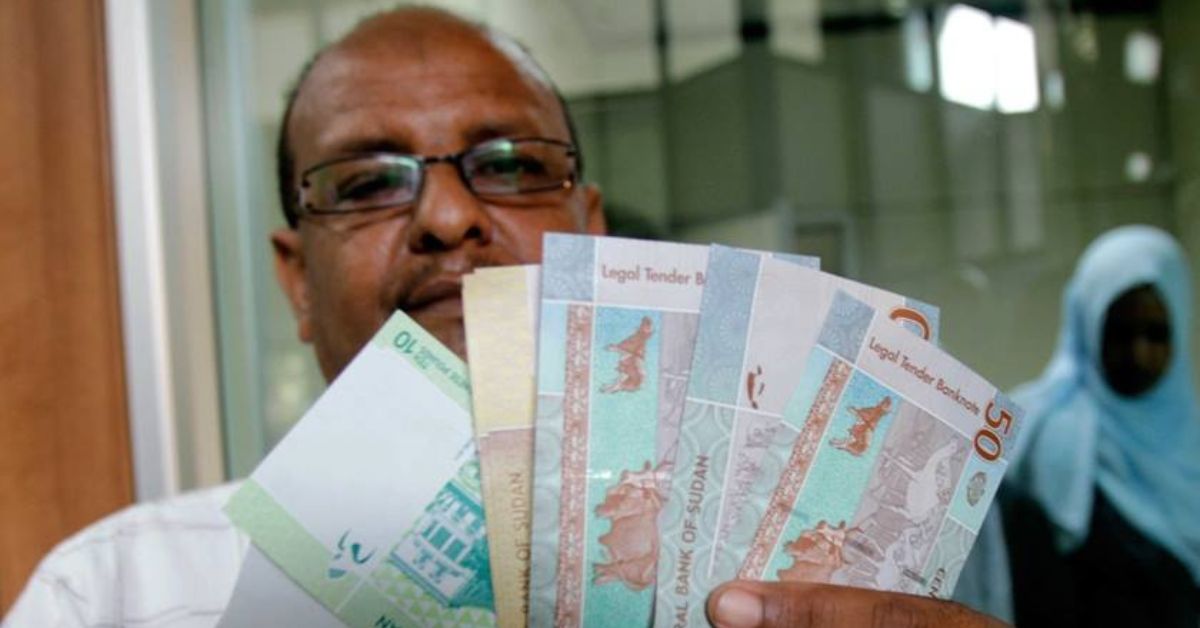DOHA, QATAR — Exchange rate of the Sudanese pound has been stable against foreign currencies despite the fighting that entered its third month in Khartoum and has recently expanded to encompass a few states in western and central of Sudan posing an unpredictable surprise, according to observers.
Shedding light on the reasons for the relative stability of the Sudanese pound, Dr. Omar Khlaif Gharaibeh, an Associate Professor of Finance and Banking at Al Al-Bayt University in Jordan, said one of the main factors is the fact that conflict is currently localized to the state of Khartoum, which is just one of Sudan’s 18 states.
This relative peace, he suggests, has significantly contributed to monetary and financial stability in Sudan.
Dr. Gharaibeh also pointed out that Sudan has been relying more on local investment to compensate for the decline in foreign investment. As per World Bank data, foreign investment fell to less than US$500 million in 2021, a stark contrast from nearly US$2 billion in 2012.
He further emphasized that the capital flight from Sudan has been minimal, due to the conflict being concentrated in Khartoum. These factors, Gharaibeh argues, have lessened the impact of the conflict on Sudan’s financial stability.
However, Gharaibeh stressed that the Central Bank of Sudan’s role in bolstering confidence in the Sudanese banking sector should not be overlooked.
“The Central Bank has been working diligently to reassure depositors and bank account holders about the safety of their funds, particularly as most banks across various Sudanese states have remained operational. This has increased short-term confidence in the country’s monetary policy and banking sector. In addition, the Central Bank has implemented key measures to enhance its monetary policies, aimed at achieving monetary stability and unifying the foreign exchange rate,” he said.
Some observers have noted that the exchange rate of the Sudanese pound to the US dollar has shown relative stability, hovering around 600 pounds per dollar. This stability comes despite a significant contraction in the Sudanese markets and rising prices, as factories in the volatile Khartoum state have halted operations, with some suffering partial damage. The stability is partly due to the commitment made by donors at the high-level pledging conference on Sudan held in June, promising US$1.5 billion in humanitarian aid.
However, this stability follows a dramatic decline in the Sudanese pound, which depreciated nearly 700 percent from 55 to 375 pounds against the dollar over the 24 months prior to the conference. This decline was triggered by the Sudanese government’s decision on February 21, 2021, to float the pound’s exchange rate, aiming to correct distortions in the Sudanese economy by bridging the substantial gap between the official exchange rate of 55 pounds per dollar and the market price of approximately 370 pounds prior to the decision.
Sudanese economist Tariq Ibrahim Abu Shouk warned that the recent stability of the local currency exchange rate, particularly against the dollar, does not signify a recovery of the Sudanese economy. He cited persistently high inflation as a clear indication of ongoing economic challenges.
Abu Shouk attributed the recent stability in the Sudanese pound to several factors, including a halt in import activities as factories that were importing production inputs stopped operating. He also noted that the Sudanese pound has faced significant deterioration since South Sudan gained independence. (QNA)








